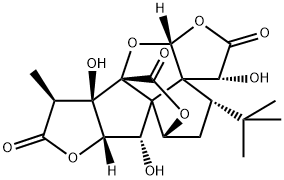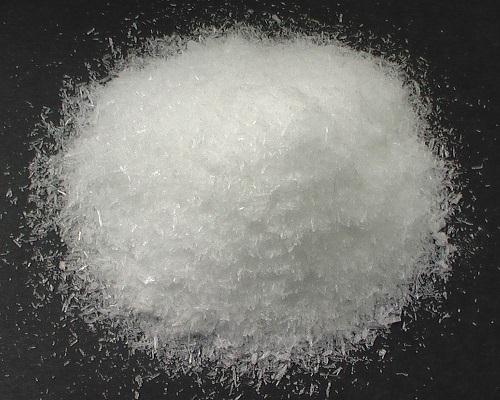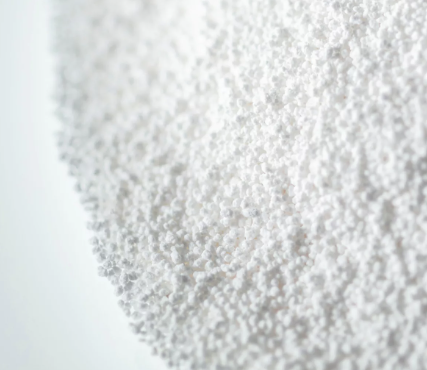Ginkgolide B: Origin, Pharmacokinetics and Neuroprotective Effects
General Description
Ginkgolide B, derived from Ginkgo biloba, showcases potent neuroprotective properties, particularly in treating ischemic strokes. Its pharmacokinetic studies highlight efficient absorption and distribution in the body, contributing to its health benefits. Research underscores Ginkgolide B's ability to reduce infarct size, brain edema, and enhance neuronal survival in stroke models. The compound regulates neurotransmitter levels, ion balance, and exerts antioxidant, anti-inflammatory, and anti-apoptotic effects. Notably, its antagonist action at the PAF receptor plays a crucial role in neuroprotection. Overall, Ginkgolide B emerges as a promising natural compound with therapeutic potential for ischemic stroke by targeting diverse cellular pathways.
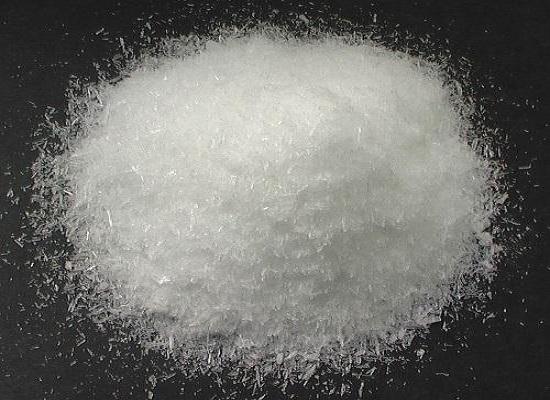
Figure 1. Ginkgolide B
Origin
Ginkgolide B is a bioactive compound derived from Ginkgo biloba, a prominent Chinese medicinal plant. Ginkgo biloba leaf extracts have been marketed in Europe since 1965 and have been used for the treatment of a wide range of vascular and cognitive disorders, including dementia and peripheral arterial occlusive diseases. Corresponding therapeutic indications, i.e., symptomatic treatment of mild to moderate dementia syndromes, including primary degenerative dementia, vascular dementia and mixed forms, cerebral insuffi ciency, neurosensory disturbances such as dizziness/vertigo and tinnitus, enhancement of cognitive performance and symptomatic treatment of peripheral arterial occlusive disease (intermittent claudication), are supported likewise by the monograph of the European Scientifi c Cooperative on Phytotherapy (ESCOP) commission (ESCOP, 2003).
The constituents of the extracts are fl avonoids (flavonol glycosides), diterpene trilactones including ginkgolides A, B, and C, and the pentanorditerpene bilobalid. These particular terpenes occur exclusively in Ginkgo biloba and are responsible for the bitter taste of its leaf preparations. They were found to antagonize platelet activating factor, an endogenous mediator of infl ammation produced by a variety of infl ammatory cells, which may improve cardiovascular blood flow.1
Pharmacokinetics
Ginkgolide B exhibits significant pharmacokinetic properties that influence its potential health effects. Pharmacokinetics refers to the study of how a substance is absorbed, distributed, metabolized, and excreted in the body over time. Research conducted on 12 healthy volunteers revealed crucial insights into the pharmacokinetics of Ginkgolide B. After single-dose administration of Ginkgo biloba extract via oral and intravenous routes, the compound exhibited high bioavailability. Bioavailability coefficients, such as the area under the curve (AUC), indicated favorable values for Ginkgolide B, suggesting efficient absorption and distribution within the body. In a more recent study involving 24 volunteers, the pharmacokinetics of commercially available Ginkgolide B preparations were investigated. The study assessed plasma concentrations of Ginkgolides A, Ginkgolide B, and bilobalide following oral administration of the preparations. The results indicated that these bioactive compounds were bioavailable across different formulations, as evidenced by comparable pharmacokinetic parameters, particularly the total AUC. Furthermore, the concentrations of Ginkgolide B and other bioactive compounds in the preparations were determined, highlighting their presence and potential for systemic distribution within the body. Overall, these studies underscore the favorable pharmacokinetic profile of Ginkgolide B, indicating efficient absorption, distribution, and bioavailability, which are essential factors contributing to its potential health benefits. These findings provide valuable insights for further understanding the therapeutic implications of Ginkgolide B in clinical applications. 2
Neuroprotective Effects
Extensive evidences has shown the promising effects of Ginkgo biloba consumption on several diseases such as Alzheimer's and Parkinson's diseases, and ischemic stroke, etc. Several studies also have reported its beneficial role on motor activity and cognitive functions. This species contain a unique class of diterpenes, namely Ginkgolide B, which possess several pharmacological activities such as protective effect against cardiovascular disease; the most important causes of death worldwide. The promising effects of Ginkgolide B on stroke, both ischemic and hemorrhagic, are suggested by an overwhelming body of scientific evidences. Many studies have shown that the increase of sirt1 expression, the suppression of nuclear factor kappa-B (NF-kB, the inhibition of the PI3K/Akt pathway and toll-like receptor 4 (TLR4/NF-kB, the up-regulation of heme oxygenase 1, erythropoietin secretion and anti-apoptotic protein expression, the inhibition of pro-apoptotic proteins expression, and the improvement of endothelial NO synthesis are the main molecular mechanisms involved in the protective effect of Ginkgolide B on ischemic stroke.2
References:
[1] KARIN WOELKART. Pharmacokinetics of bilobalide, ginkgolide A and B after administration of three different Ginkgo biloba L. preparations in humans.[J]. Phytotherapy Research, 2010, 24 3. DOI:10.1002/ptr.3074.[2] SEYED MOHAMMAD NABAVI. Neuroprotective Effects of Ginkgolide B Against Ischemic Stroke: A Review of Current Literature.[J]. Current topics in medicinal chemistry, 2015, 15 21. DOI:10.2174/1568026615666150610142647.
You may like
Related articles And Qustion
See also
Lastest Price from Ginkgolide B manufacturers
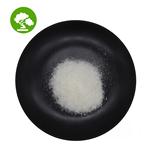
US $0.00/kg2024-04-12
- CAS:
- 15291-77-7
- Min. Order:
- 1kg
- Purity:
- 98%
- Supply Ability:
- 2000ton

US $0.00/mg2023-02-24
- CAS:
- 15291-77-7
- Min. Order:
- 5mg
- Purity:
- ≥98%(HPLC)
- Supply Ability:
- 10 g
